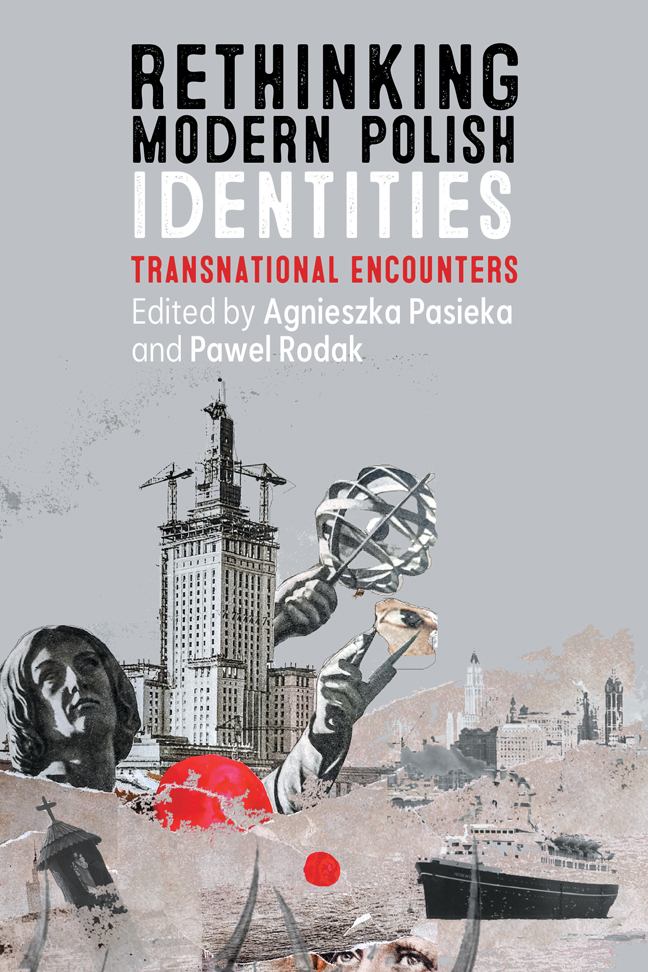Book contents
- Frontmatter
- Contents
- Acknowledgments
- Introduction: Polishness: A Story of Sameness and Difference
- Part One Redefining Polishness
- Part Two Identity in the Making
- Part Three Portraits and Performances
- Afterword: Polishness: A Time of Deconstruction, a Time of Reconstruction
- Notes on the Contributors
- Index of Names
- Index of Subjects
Four - Suspicious Origins as a Category of Polish Culture
Published online by Cambridge University Press: 10 January 2024
- Frontmatter
- Contents
- Acknowledgments
- Introduction: Polishness: A Story of Sameness and Difference
- Part One Redefining Polishness
- Part Two Identity in the Making
- Part Three Portraits and Performances
- Afterword: Polishness: A Time of Deconstruction, a Time of Reconstruction
- Notes on the Contributors
- Index of Names
- Index of Subjects
Summary
Polish literature always contains the traces of the often stateless but—until the second half of the twentieth century—always multinational Poland. These heterogenic traces undermine the easy closure of a national community. The work of the Polish national poet, Adam Mickiewicz, embraces a universe much larger than an ethnically “pure” Poland. He invited into his poems not only the Polish Mother but also the innkeeper Jankiel, the turncoat Wallenrod, people celebrating Belorussian pagan rites, Lithuanians, Greek Catholic priests, and even ghosts. Mickiewicz's generosity and that of other Romantics built contemporary Poland on a literature of otherness and heterogeneity. It is an open Poland, embedded in world history not as a tight-knit and separate national unit of one ethnicity and one religion but as a multinational community. It is this heterogeneity that, like a permanent blemish, is visible each time the white tablecloth is spread for a national banquet.
This chapter is concerned with a moment in Polish cultural history when the issue of national identity was being clarified anew. It looks at the Polish books and newspapers appearing around the year 2000 (i.e., when Poland, already a member of the NATO, was eagerly preparing to join the European Union). It was a country that during the ten years of its new freedom openly debated its history and identity. These debates often paid close attention to the genealogy of various important Polish personalities. In the model of nativist culture, it is the mother who guarantees belonging. The origin of Frederic Chopin, Adam Mickiewicz, and Juliusz Słowacki became a topic of newspaper and media interest. Today we can clearly see that the intense focus on that issue was pointing the way toward rampant nationalism.
The issue was the ethnic or religious origin of these cultural icons. One could detect three types of reactions to this dilemma. First, the Jewishness of a person is discussed, suggested, or implied, but not made explicit. The second denies a person's Jewish origins. The third reaction involves a particular public figure’s non-Polish origins being acknowledged but explained away as not Jewish but Tartar or Armenian. In each of these types of reactions, the matter of foreign origin is treated with utmost importance even though the persons in question declare themselves Polish and have been active participants in Polish culture.
- Type
- Chapter
- Information
- Rethinking Modern Polish IdentitiesTransnational Encounters, pp. 74 - 91Publisher: Boydell & BrewerPrint publication year: 2023

